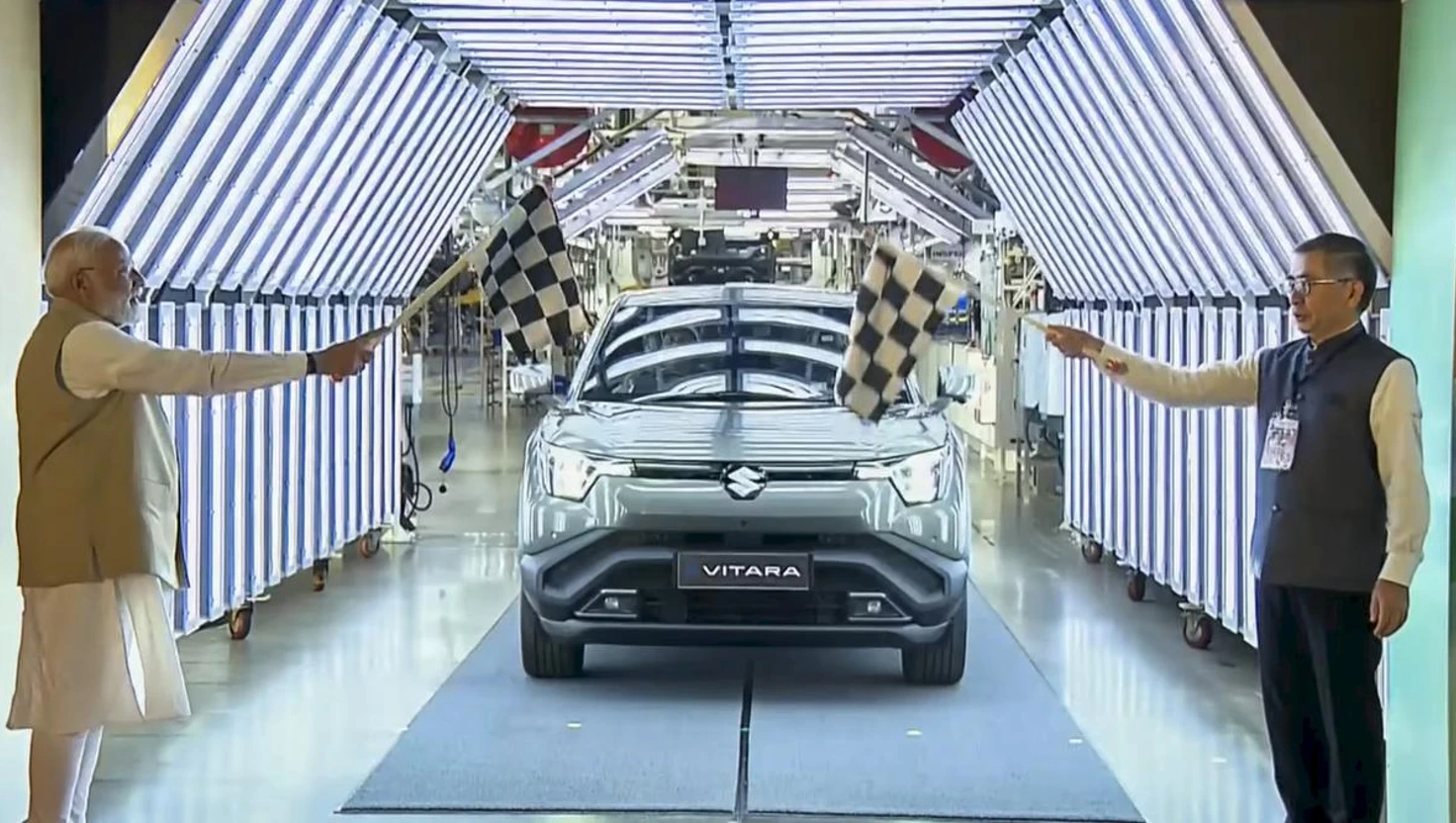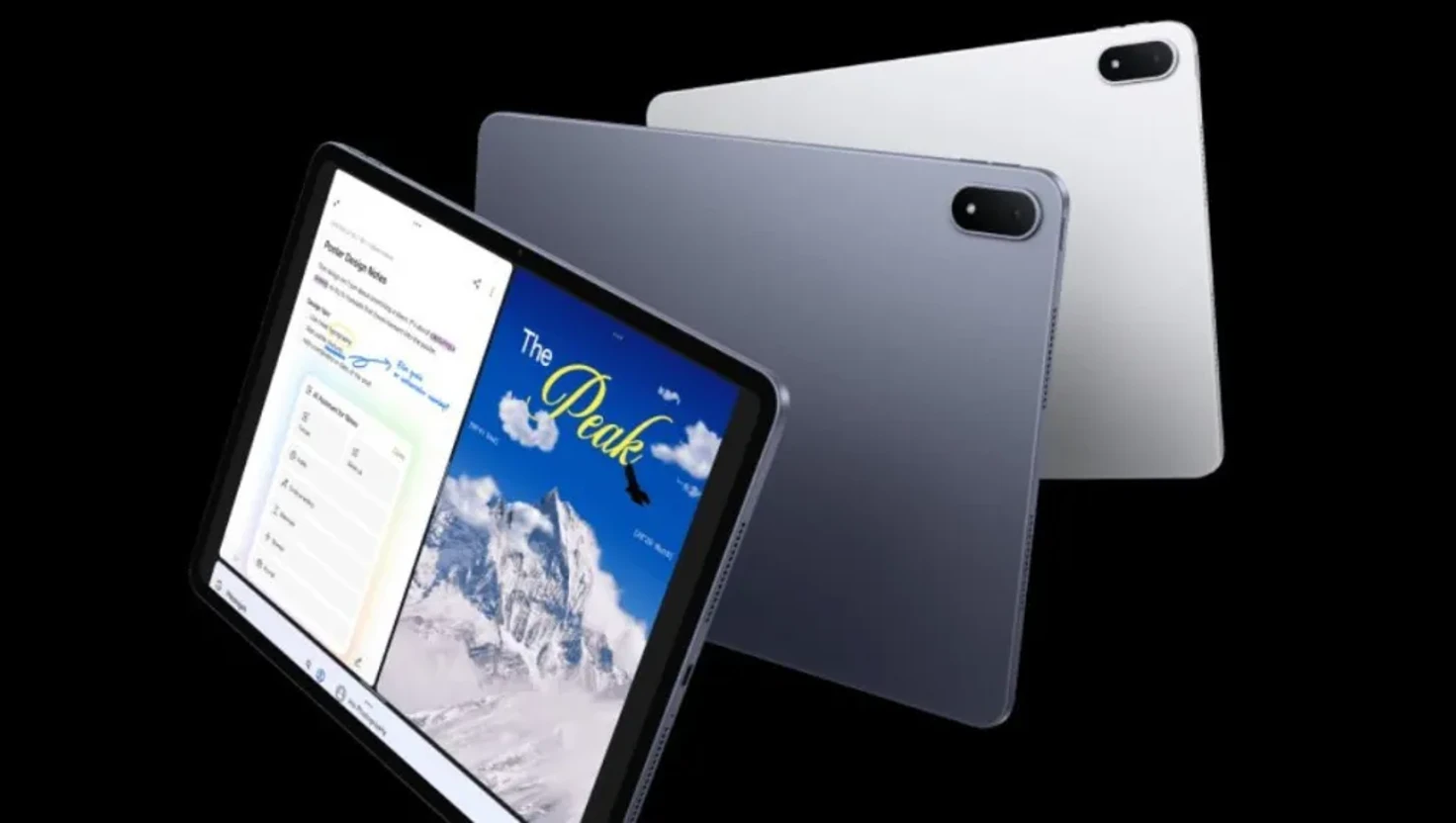Maruti Suzuki Launches Local Battery Production for Electric Vehicles

Maruti Suzuki Launches Local Battery Production for Electric Vehicles
Maruti Suzuki's new facility in Gujarat will produce batteries for the e-Vitara and hybrids, enhancing India's green mobility efforts.
Prime Minister Narendra Modi has officially inaugurated a new manufacturing facility for Maruti Suzuki in Hansalpur, Gujarat, which will produce batteries for electric and hybrid vehicles, including the e-Vitara and the Grand Vitara hybrid. The Prime Minister underscored the significance of this development for India’s ambition to become self-reliant in clean energy solutions.
Local Manufacturing of Technology
The opening of the facility includes an assembly line specifically designed for the Maruti Suzuki e-Vitara, marking the company’s first foray into electric vehicles (EVs) made in India. Additionally, the plant is set to manufacture lithium-ion batteries, crucial components in electric and hybrid cars. This local production initiative is part of a broader strategy to establish India as a hub for electric mobility, with particular focus on sustainable energy solutions.
During the inauguration, PM Modi highlighted an investment commitment exceeding ₹70,000 crore (approximately £7 billion) from Suzuki over the next five to six years, which aims to bolster local manufacturing capabilities and create job opportunities.
The Role of Collaboration
The plant will produce lithium-ion battery cells and electrodes through a collaboration involving three Japanese firms: Toshiba, Denso, and Suzuki. The local production aims to address the challenges associated with battery sourcing and reduce reliance on imports, which have characterised India's electric vehicle landscape until now.
In his speech, PM Modi expressed confidence in the sustainable future of the automotive industry in India, stating, "This initiative will not only enhance local manufacturing but also accelerate the country's journey towards greener mobility."
Features of the New Vehicles
The Maruti Suzuki Grand Vitara features a 1.5-litre petrol engine complemented by an electric motor, enhancing fuel efficiency while minimising emissions. The vehicle is part of a new 'Strong Hybrid' lineup, which includes various trims such as Delta+, Zeta+, and Alpha+, all offering advanced hybrid technology.
Meanwhile, the e-Vitara will be available with two battery capacities: 49 kWh and 61 kWh. Notably, the larger battery option is offered in a dual-motor all-wheel-drive configuration, expanding choices for customers seeking electrified mobility solutions.
Future Developments
As part of its commitment to the “Make in India” initiative, Maruti Suzuki's Hansalpur facility is expected to contribute to the local production of hybrid battery electrodes, with the aim of supporting e-ambulances and various hybrid vehicles within India. The comprehensive development of the electric vehicle ecosystem is seen as vital for addressing climate change and promoting sustainability.
PM Modi reiterated the importance of domestic manufacturing in the face of global supply chain disruptions and pledged support for advanced manufacturing in the country. He indicated that the collaboration with Japanese firms reinforces India’s commitment to producing quality electric vehicles for both domestic and international markets.
In conclusion, this new plant not only marks a pivotal moment for Maruti Suzuki but also sets a precedent for the broader Indian automotive industry's transition towards electric and hybrid technologies. As Maruti Suzuki prepares to export its electric vehicles to more than 100 countries, including regions like Europe and Japan, the initiative is poised to significantly bolster India's stature in the global automotive market.
Local Manufacturing of Technology
The opening of the facility includes an assembly line specifically designed for the Maruti Suzuki e-Vitara, marking the company’s first foray into electric vehicles (EVs) made in India. Additionally, the plant is set to manufacture lithium-ion batteries, crucial components in electric and hybrid cars. This local production initiative is part of a broader strategy to establish India as a hub for electric mobility, with particular focus on sustainable energy solutions.
During the inauguration, PM Modi highlighted an investment commitment exceeding ₹70,000 crore (approximately £7 billion) from Suzuki over the next five to six years, which aims to bolster local manufacturing capabilities and create job opportunities.
The Role of Collaboration
The plant will produce lithium-ion battery cells and electrodes through a collaboration involving three Japanese firms: Toshiba, Denso, and Suzuki. The local production aims to address the challenges associated with battery sourcing and reduce reliance on imports, which have characterised India's electric vehicle landscape until now.
In his speech, PM Modi expressed confidence in the sustainable future of the automotive industry in India, stating, "This initiative will not only enhance local manufacturing but also accelerate the country's journey towards greener mobility."
Features of the New Vehicles
The Maruti Suzuki Grand Vitara features a 1.5-litre petrol engine complemented by an electric motor, enhancing fuel efficiency while minimising emissions. The vehicle is part of a new 'Strong Hybrid' lineup, which includes various trims such as Delta+, Zeta+, and Alpha+, all offering advanced hybrid technology.
Meanwhile, the e-Vitara will be available with two battery capacities: 49 kWh and 61 kWh. Notably, the larger battery option is offered in a dual-motor all-wheel-drive configuration, expanding choices for customers seeking electrified mobility solutions.
Future Developments
As part of its commitment to the “Make in India” initiative, Maruti Suzuki's Hansalpur facility is expected to contribute to the local production of hybrid battery electrodes, with the aim of supporting e-ambulances and various hybrid vehicles within India. The comprehensive development of the electric vehicle ecosystem is seen as vital for addressing climate change and promoting sustainability.
PM Modi reiterated the importance of domestic manufacturing in the face of global supply chain disruptions and pledged support for advanced manufacturing in the country. He indicated that the collaboration with Japanese firms reinforces India’s commitment to producing quality electric vehicles for both domestic and international markets.
In conclusion, this new plant not only marks a pivotal moment for Maruti Suzuki but also sets a precedent for the broader Indian automotive industry's transition towards electric and hybrid technologies. As Maruti Suzuki prepares to export its electric vehicles to more than 100 countries, including regions like Europe and Japan, the initiative is poised to significantly bolster India's stature in the global automotive market.

Bigg Boss 19 Contestants Revealed Ahead of Premiere Tonight
The lineup for Bigg Boss 19 features 16 contestants, including Ashnoor Kaur and Gaurav Khanna, debuting tonight at 9 pm on JioHotstar.
| 2025-08-26

Noida Dowry Murder Case: Four Arrested Over Alleged Killing
Police arrest four individuals, including family members, in connection with a 26-year-old woman's dowry-related murder in Greater Noida.
| 2025-08-26

Lakshya Sen Exits BWF World Championships in Opening Round
Indian shuttler Lakshya Sen is eliminated from the BWF World Championships, losing to top seed Shi Yu Qi of China in a straight-game match.
| 2025-08-26

OnePlus Pad 3 Officially Launches in India on September 5
OnePlus announces the launch of its latest tablet, the Pad 3, set for September 5 in India, featuring advanced specifications and new design.
| 2025-08-26

Factors Influencing Indian Stock Market Performance This Week
Key elements shaping stock market trends ahead of crucial trading days in India.
| 2025-08-26




